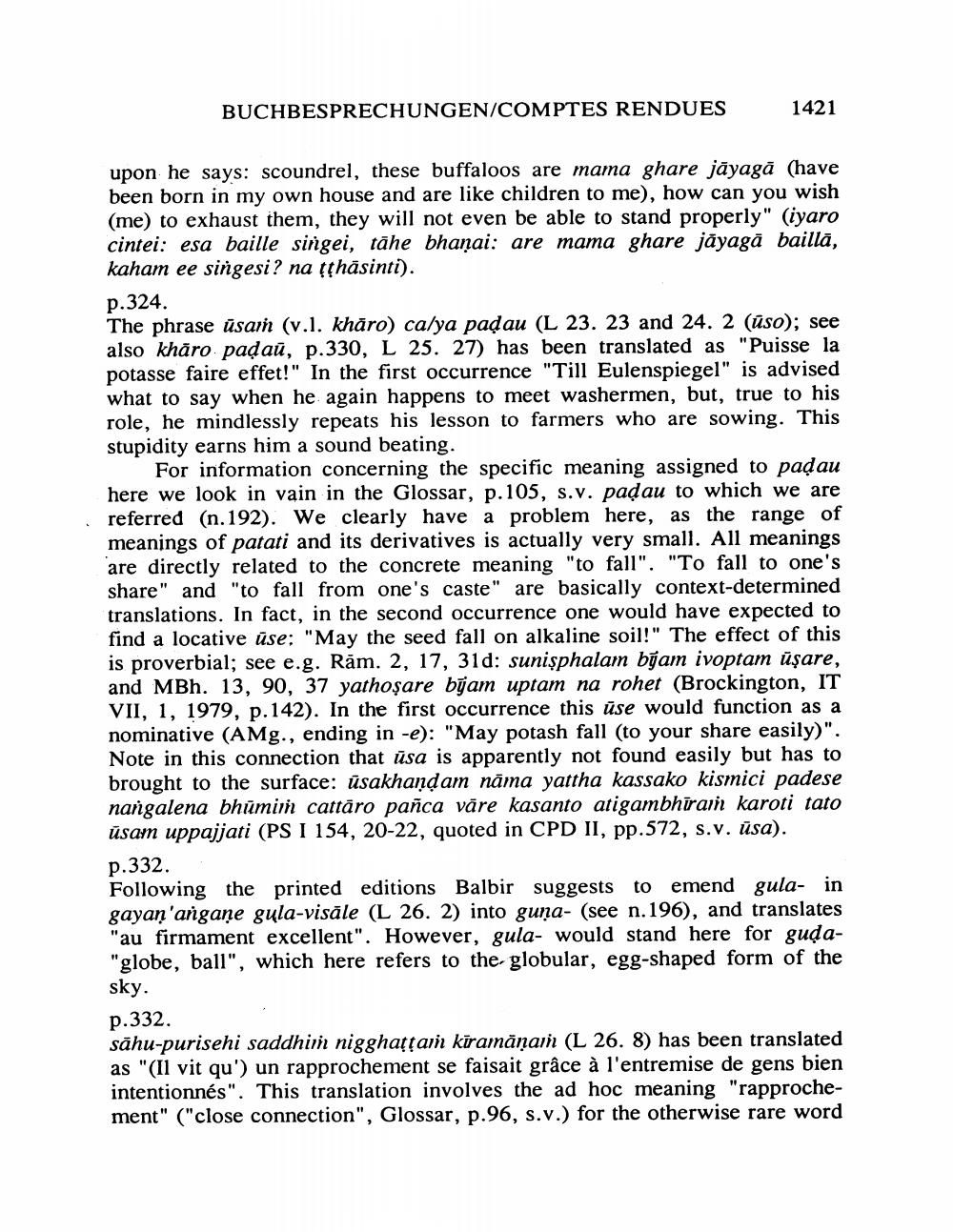Book Title: Buchbesprechungen Comptes Rendues Author(s): Nalini Balbir Publisher: Nalini Balbir View full book textPage 7
________________ BUCHBESPRECHUNGEN/COMPTES RENDUES 1421 upon he says: scoundrel, these buffaloos are mama ghare jāyagā (have been born in my own house and are like children to me), how can you wish (me) to exhaust them, they will not even be able to stand properly" (iyaro cintei: esa baille singei, tähe bhanai: are mama ghare jāyagā baillă, kaham ee singesi? na ṭṭhāsinti). p.324. The phrase usam (v.1. kharo) calya paḍau (L 23. 23 and 24. 2 (uso); see also khāro paḍau, p.330, L 25. 27) has been translated as "Puisse la potasse faire effet!" In the first occurrence "Till Eulenspiegel" is advised what to say when he again happens to meet washermen, but, true to his role, he mindlessly repeats his lesson to farmers who are sowing. This stupidity earns him a sound beating. For information concerning the specific meaning assigned to paḍau here we look in vain in the Glossar, p. 105, s.v. paḍau to which we are referred (n.192). We clearly have a problem here, as the range of meanings of patati and its derivatives is actually very small. All meanings are directly related to the concrete meaning "to fall". "To fall to one's share" and "to fall from one's caste" are basically context-determined translations. In fact, in the second occurrence one would have expected to find a locative use: "May the seed fall on alkaline soil!" The effect of this is proverbial; see e.g. Răm. 2, 17, 31d: suniṣphalam bijam ivoptam uşare, and MBh. 13, 90, 37 yathoşare bijam uptam na rohet (Brockington, IT VII, 1, 1979, p.142). In the first occurrence this use would function as a nominative (AMg., ending in -e): "May potash fall (to your share easily)". Note in this connection that ūsa is apparently not found easily but has to brought to the surface: ūsakhaṇḍam nama yattha kassako kismici padese nangalena bhumim cattaro pañca vāre kasanto atigambhiram karoti tato usam uppajjati (PS I 154, 20-22, quoted in CPD II, pp.572, s.v. ūsa). p.332. Following the printed editions Balbir suggests to emend gula- in gayan'angane gula-visale (L 26. 2) into guna- (see n.196), and translates "au firmament excellent". However, gula- would stand here for guḍa"globe, ball", which here refers to the globular, egg-shaped form of the sky. p.332. sähu-purisehi saddhim nigghaṭṭam kiramānam (L 26. 8) has been translated as "(Il vit qu') un rapprochement se faisait grâce à l'entremise de gens bien intentionnés". This translation involves the ad hoc meaning "rapprochement" ("close connection", Glossar, p.96, s.v.) for the otherwise rare wordPage Navigation
1 ... 5 6 7 8 9 10 11 12 13 14 15
